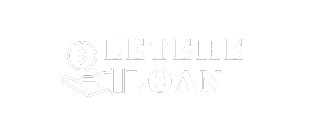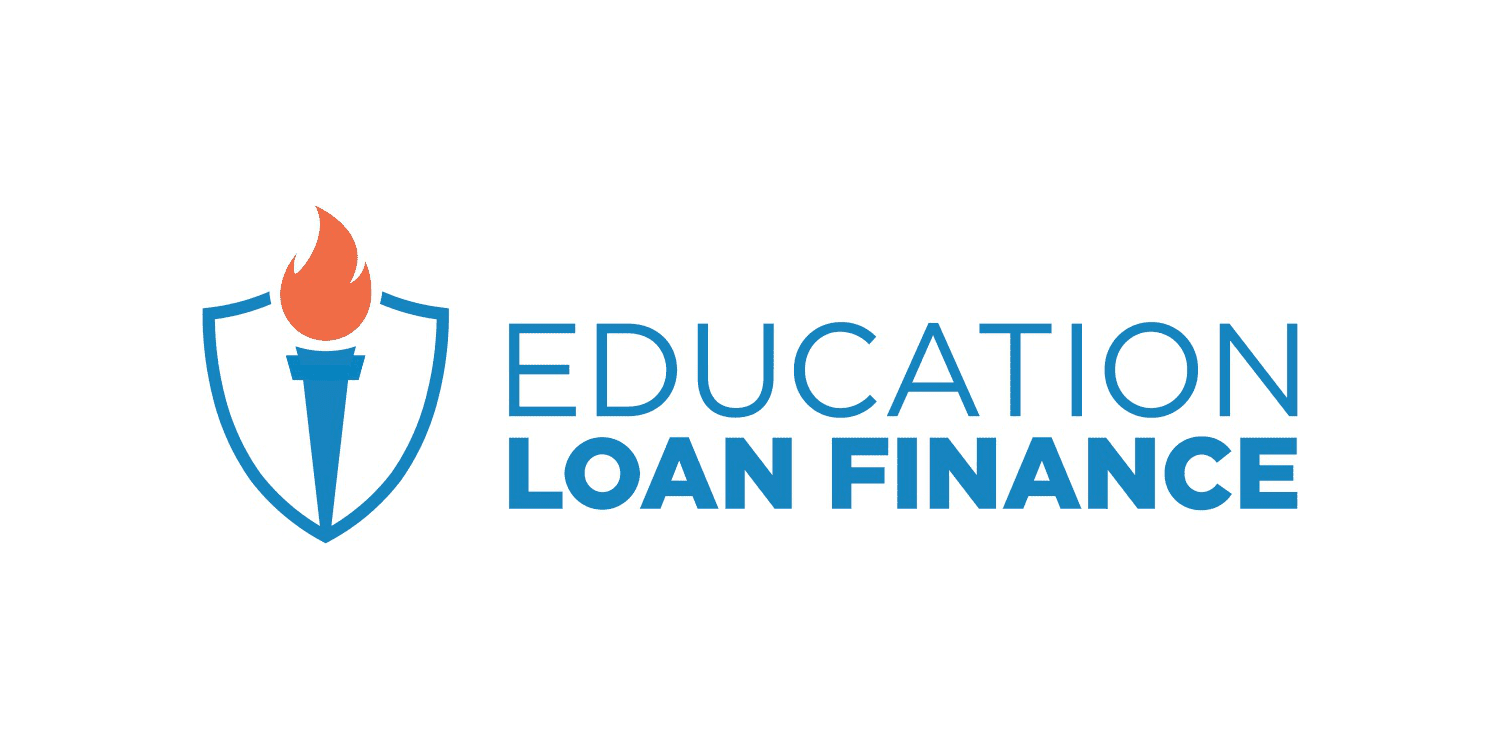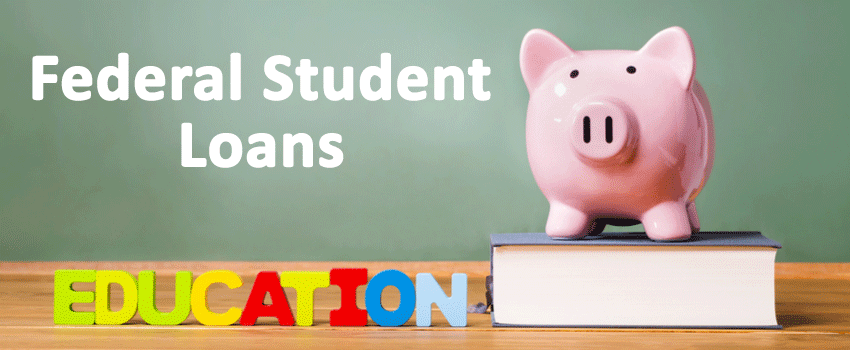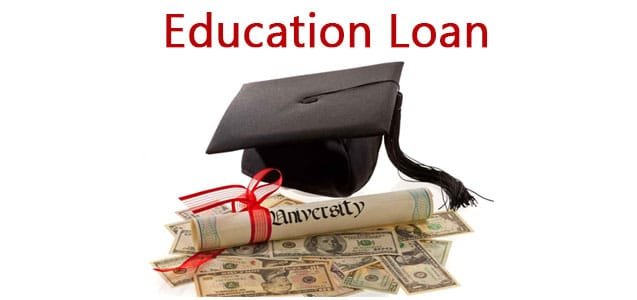Education is often the key to securing a successful career, and for many individuals, taking out education loans is an essential step to achieving this goal. Education loans help cover the rising costs of tuition, living expenses, and other academic-related costs. While education loans provide immediate relief and access to higher education, they can have a lasting impact on your financial future.
The burden of education loans can affect various aspects of financial well-being, from personal savings to future investments. In this article, we’ll explore how education loans can shape your financial future, from the immediate consequences during your studies to the long-term effects after graduation.
Key Takeaway
Education loans can provide valuable opportunities for education and career advancement, but they come with a financial cost. Managing debt effectively through careful planning, refinancing, and utilizing forgiveness programs is crucial to mitigating the long-term impact of student loans on your financial future.
Understanding Education Loans

Before diving into the financial impact of education loans, it’s essential to understand what they are. Education loans, also referred to as student loans, are borrowed funds that students or their parents can use to pay for education expenses. These loans can be obtained from federal or private lenders, and they come with varying interest rates, repayment terms, and conditions.
Types of Education Loans
- Federal Education Loans: These loans are provided by the government, typically at lower interest rates. They often come with more flexible repayment options, including income-driven repayment plans, deferment, and forbearance. Federal loans include subsidized loans (for students with financial need) and unsubsidized loans (which accrue interest while the student is in school).
- Private Education Loans: Private lenders, such as banks or credit unions, offer these loans. Private loans usually have higher interest rates than federal loans, and repayment terms may not be as flexible. Private loans often require a credit check, and a co-signer may be necessary if the borrower lacks a credit history or sufficient income.
The amount borrowed and the type of loan can have a significant impact on how your financial future is shaped. Now, let’s look into how education loans influence your finances both short-term and long-term.
Immediate Financial Impact of Education Loans
1. Debt Accumulation
The most immediate effect of taking out education loans is the accumulation of debt. As you borrow money to pay for your education, the debt increases with each semester. With federal loans, interest typically begins to accrue as soon as the loan is disbursed, especially for unsubsidized loans, meaning that you may owe more than the original loan amount when you graduate.
For students who rely solely on private loans, this debt accumulation can be even more pronounced, as private loans often come with higher interest rates. Borrowers may find themselves leaving college with tens of thousands of dollars in debt, which will eventually need to be repaid.
2. Limited Disposable Income
While in school, you may not have a significant income or financial responsibilities, meaning that your immediate financial situation may not feel strained by your loans. However, once you graduate, the reality of loan repayment kicks in, and many borrowers find that they have limited disposable income. This is especially true for students who borrow large sums to cover tuition, room and board, and other college-related expenses.
Graduates often face the challenge of balancing their student loan payments with other living expenses, such as rent, groceries, utilities, and transportation. The limited disposable income can affect your ability to save for the future, invest, or even enjoy certain aspects of life like travel or entertainment.
3. Financial Stress and Mental Health
Education loans can cause significant stress, especially when the borrower faces the prospect of large monthly payments after graduation. This stress can take a toll on mental health, potentially affecting overall well-being. Financial stress is one of the leading causes of anxiety, depression, and sleep disturbances among students and graduates, with the weight of education debt looming over their heads.
While there are options for loan deferment or forbearance, these solutions can only be temporary. Additionally, for borrowers struggling with multiple loans, debt consolidation and refinancing may be necessary to simplify payments, but this can also add more complexity to your financial life.
Long-Term Financial Impact of Education Loans
Once you’ve completed your education and begun repaying your loans, the long-term impact of your student loan debt will start to unfold. This can affect nearly every aspect of your financial future.
1. Impact on Credit Score
Student loans are one of the major types of debt that impact your credit score. How well you manage your student loan payments can significantly influence your credit report and score. Timely payments improve your credit score, while missed or late payments can damage your credit and hinder your ability to qualify for mortgages, auto loans, or even credit cards in the future.
For graduates who are struggling with repayment, missed payments or defaulting on loans can lead to severe credit consequences. A damaged credit score can make it difficult to get favorable terms on future loans, including higher interest rates and less access to credit.
2. Difficulty in Buying a Home
For many people, purchasing a home is a significant life goal. However, education loans can make this goal more difficult to achieve. Lenders often consider your debt-to-income ratio when approving mortgages. A high level of student loan debt can increase your debt-to-income ratio, making it harder to qualify for a mortgage or securing a loan with favorable terms.
Even if you do qualify for a mortgage, your student loan debt may result in a smaller loan amount, limiting your home-buying options. You may also face higher interest rates on the mortgage due to your outstanding education debt.
3. Delayed Retirement Savings
Another long-term impact of education loans is their potential to delay retirement savings. When a significant portion of your income goes toward student loan repayments, it leaves less money available to contribute to retirement accounts, such as a 401(k) or IRA. The longer you delay saving for retirement, the less time your investments have to grow, which could result in a lower standard of living when you retire.
In fact, for many individuals carrying substantial student loan debt, saving for retirement might seem impossible. The burden of loan repayment often takes priority over long-term financial goals like retirement, which can hurt financial security in the future.
4. Limited Financial Freedom
Education loans can limit your financial freedom in several ways. First, you may feel confined to a particular career path that offers higher salaries to help pay off loans, even if it’s not a job you’re passionate about. Second, you may be unable to make significant life changes, such as moving to a new city, starting a family, or pursuing personal ventures, because of your financial obligations.
Student loan debt can also make it more challenging to take career risks, such as starting a business or switching industries. With a heavy debt load, it may feel necessary to remain in a stable, higher-paying job to maintain regular loan payments.
5. The Cost of Delayed Debt Repayment
One of the key elements that make education loans financially impactful is the interest that accumulates over time. Even if you start repaying your loans as soon as you graduate, it can take years, sometimes decades, to fully pay off the balance. Over that time, the interest can significantly increase the total cost of the loan.
For borrowers with high-interest loans, the total amount repaid over the course of the loan can end up being much more than the original loan amount. This is why it’s important to consider loan repayment strategies, such as refinancing or making additional payments, to reduce interest costs over time.
Strategies to Minimize the Financial Impact of Education Loans

While education loans can have a substantial impact on your financial future, there are several strategies you can use to mitigate the effects:
1. Refinance Your Loans
Refinancing allows you to replace existing loans with a new loan at a potentially lower interest rate. This can reduce your monthly payments and help you save on interest in the long run. Refinancing is especially helpful for borrowers with high-interest loans or those who have improved their credit scores since taking out the original loans.
2. Explore Income-Driven Repayment Plans
For federal student loan borrowers, income-driven repayment plans allow you to adjust your monthly payments based on your income and family size. These plans can help make your loan payments more manageable, especially if you’re earning a lower salary early in your career.
3. Make Extra Payments When Possible
If you’re financially able, making extra payments on your student loans can help reduce the principal balance more quickly. Paying off loans faster reduces the total interest you pay over time, helping you achieve debt freedom sooner.
4. Take Advantage of Loan Forgiveness Programs
If you’re employed in certain public service jobs, you may qualify for loan forgiveness programs, such as Public Service Loan Forgiveness (PSLF). These programs allow you to have your loan balance forgiven after making a set number of qualifying payments under an eligible repayment plan.
Understanding the Basics of Education Loans: A Beginner’s Guide
Education loans are a crucial financial tool for many students, but understanding how they work can be overwhelming. This article would provide a step-by-step breakdown of education loans, explaining the differences between federal and private loans, the application process, and the key factors to consider when borrowing money for education. It will also cover how interest accrues, repayment options, and the long-term financial consequences of taking on student debt.
The Financial Implications of Education Loans: How to Plan for Repayment
Education loans represent a significant financial commitment that can span decades, affecting personal finances well beyond graduation. This article would focus on how education loans impact borrowers’ financial planning, such as budgeting for loan repayment, managing competing financial goals like saving for a home or retirement, and strategies for minimizing debt. It would also discuss the importance of understanding loan terms and interest rates to ensure borrowers are prepared for the repayment process.
The Pros and Cons of Federal Education Loans for College Students
Federal education loans are often seen as a favorable option due to their lower interest rates and more flexible repayment plans. However, like any loan, they have their advantages and drawbacks. This article would delve into the specific benefits of federal loans, such as access to forgiveness programs and income-driven repayment options, while also considering potential disadvantages, such as borrowing limits and the time it takes to repay the debt.
Navigating Private Education Loans: What Borrowers Need to Know
Private loans can be an option for students who need additional funding beyond what federal loans offer. However, private loans often come with higher interest rates and less favorable repayment options. This article would examine the pros and cons of private education loans, including eligibility requirements, interest rates, repayment terms, and the importance of understanding the terms of the loan before borrowing. It will also offer tips for finding the best private loans available and minimizing borrowing costs.
Education Loan Repayment Plans: Choosing the Right Option for You
Education loan repayment can feel like an overwhelming task, but there are a variety of repayment plans available that cater to different financial situations. This article would provide an overview of the different types of repayment plans for federal student loans, including standard repayment, extended repayment, and income-driven repayment options. It will help borrowers determine which repayment plan best suits their income and career goals and explain the long-term financial impact of each choice.
The Impact of Student Loan Debt on Financial Independence and Wealth Building
Student loans can delay financial independence by tying up money that could otherwise be used for savings, investments, or homeownership. This article would explore the broader economic consequences of student loan debt, such as the difficulty in achieving major milestones like buying a home, starting a family, or investing in the stock market. It will also cover how education loan debt can affect long-term wealth-building and strategies for overcoming these barriers.
Is Education Loan Forgiveness Worth the Effort? Examining the Options
For many borrowers, education loan forgiveness programs offer a beacon of hope. Programs like Public Service Loan Forgiveness (PSLF) or Teacher Loan Forgiveness promise to relieve a portion or the entirety of student loan debt for those in qualifying professions. This article would dive deep into these forgiveness programs, discussing their eligibility criteria, the pros and cons, and how long it typically takes to achieve forgiveness. It will also provide advice on how to maximize your chances of successfully obtaining loan forgiveness.
How Education Loans Impact Career Choices and Job Opportunities
The need to repay education loans can heavily influence career decisions, including the types of jobs borrowers pursue, their earning potential, and job stability. This article would explore how education loans shape career choices, focusing on how debt may drive graduates toward higher-paying positions or industries and impact their career satisfaction. It would also discuss the concept of “loan-driven careers” and ways to balance loan repayment with personal aspirations.
Strategies for Paying Off Education Loans Faster and More Efficiently
While education loans can feel like an insurmountable burden, there are strategies that can help borrowers pay off their loans faster and more efficiently. This article would offer actionable tips on how to make extra payments, prioritize high-interest loans, or use debt snowball and avalanche methods to expedite repayment. It will also explore the potential benefits of refinancing and consolidating loans to reduce interest rates and simplify the repayment process.
The Relationship Between Education Loans and Credit Scores: What You Need to Know
Education loans play a significant role in your credit score, and how you manage them can either strengthen or damage your financial standing. This article would explore the connection between education loans and credit scores, including the factors that affect your credit rating, how missed payments can hurt your score, and how making consistent payments can improve your financial reputation. It will also provide tips for maintaining a good credit score throughout the loan repayment period.
What Are the Alternatives to Education Loans for Funding College?
Education loans are not the only option for funding college education. There are many alternative funding sources that can reduce the amount of debt a student accumulates. This article would explore various alternatives to education loans, including scholarships, grants, work-study programs, and employer tuition assistance. It will also cover how to search for and apply for these funding options and how they can help lower the cost of college education.
The Future of Education Loans: Trends and Changes in Student Financing
Education loans are not static; the landscape of student loans continues to evolve in response to changes in government policy, economic conditions, and societal needs. This article would examine future trends in education financing, such as the potential for changes to federal loan programs, the impact of rising tuition costs, and the increasing popularity of income-share agreements (ISAs). It will also discuss how these changes may impact borrowers and what steps can be taken to navigate an evolving education loan landscape.
The Psychological Impact of Education Loans: Navigating Stress and Anxiety
Student loan debt can lead to significant psychological stress for borrowers, particularly as they face the burden of repayment. This article would explore the psychological effects of student loan debt, including anxiety, depression, and feelings of financial insecurity. It will offer advice on how to manage this stress, including seeking professional help, developing healthy financial habits, and building a support network to navigate the challenges of loan repayment.
How to Maximize Your Education Loan Borrowing Power Without Over-Borrowing
While education loans are meant to support a student’s education, it is essential not to over-borrow and end up with unmanageable debt. This article would provide guidance on how to maximize your education loan borrowing power responsibly. It will include tips on calculating how much you really need to borrow, understanding your loan limits, and making sure you do not take out more money than necessary to avoid long-term financial strain.
The Role of Parents in Education Loans: What Parents Should Know
Many parents are involved in financing their child’s education and may take out loans, such as Parent PLUS loans, to help cover the costs. This article would provide an in-depth look at the role of parents in education loans, including the pros and cons of borrowing for a child’s education, repayment options, and the potential impact on parents’ long-term financial goals. It will also offer tips for parents on how to make responsible borrowing decisions and navigate the repayment process.
How to Prepare for Education Loan Repayment Before Graduation
Education loan repayment can seem daunting when you are still in school, but preparation is key to managing debt once you graduate. This article would focus on steps students can take to prepare for repayment before they leave school, such as estimating monthly payments, researching repayment plans, and setting up a budget to accommodate loan obligations. It would also discuss how to access loan servicers, review loan terms, and understand available options for managing repayments.
The Economic Impact of Education Loan Debt on Society
Education loan debt doesn’t only affect individuals—it also has broader economic implications. This article would explore the societal impact of student loan debt, including its influence on consumer spending, economic mobility, and wealth inequality. It would discuss how rising student loan debt affects the economy, the challenges it poses to social mobility, and potential policy solutions to alleviate the burden of education loans on future generations.
How Education Loans Are Affecting Millennials and Gen Z

The impact of education loans is particularly pronounced for younger generations, such as millennials and Gen Z. This article would explore how student loan debt has shaped the financial lives of these generations, including the challenges they face in homeownership, career advancement, and family planning. It would also provide insights into how millennials and Gen Z are navigating education debt, including their attitudes toward borrowing and repayment.
The Importance of Financial Literacy When Taking Out Education Loans
Financial literacy plays a crucial role in the successful management of education loans. This article would discuss why it is essential for students to have a strong understanding of financial concepts before taking on student debt. It will explore how knowledge of budgeting, credit, interest rates, and repayment options can help borrowers make more informed decisions about education loans and avoid financial pitfalls in the future.
The Role of Education Loans in Closing the Education Gap
Education loans can serve as a critical tool in addressing disparities in access to higher education. This article would examine how education loans help individuals from low-income families gain access to education, thereby contributing to efforts to close the education gap. It would also discuss the potential risks and challenges of relying on loans to fund education and how policy reforms could help create a more equitable education financing system.
Read More:- How To Improve Your Credit Score For A Better Home Loan Approval
Conclusion
Education loans are a powerful tool for accessing higher education, but they come with long-lasting financial consequences. From the immediate debt accumulation during your studies to the long-term impact on your credit, retirement savings, and financial freedom, it’s clear that student loan debt can shape your financial future for years to come.
While there are strategies available to manage and reduce the impact of student loans, borrowers must approach education debt with a clear understanding of the potential consequences. Making responsible decisions, exploring repayment options, and refinancing can help minimize the impact of student loans and ultimately lead to financial stability.
FAQs
1. How long does it take to pay off student loans?
The time it takes to repay student loans varies depending on the amount borrowed, the interest rate, and the repayment plan. Federal loans typically have a 10-year repayment term, but this can be extended under certain plans. Private loans may have varying terms.
2. What happens if I miss a student loan payment?
Missing a payment can result in late fees, damage to your credit score, and, in the long term, potential default. Contact your loan servicer to discuss deferment, forbearance, or other options to prevent missed payments from escalating.
3. Can student loans be forgiven?
Yes, federal student loans may be eligible for forgiveness programs, such as Public Service Loan Forgiveness (PSLF) or Income-Driven Repayment forgiveness.
4. Can I refinance my student loans?
Yes, refinancing allows you to consolidate your student loans at a potentially lower interest rate. However, refinancing federal loans with a private lender can cause you to lose access to certain benefits like loan forgiveness and income-driven repayment plans.
5. How do student loans affect my credit score?
Student loans are considered installment loans and impact your credit score. Timely payments improve your score, while missed payments can hurt your credit.
6. Can I get a mortgage if I have student loans?
Yes, but education loans may affect your debt-to-income ratio and could limit your ability to qualify for a mortgage or result in higher interest rates.
7. Can I defer my student loan payments?
Federal student loans may be eligible for deferment under certain circumstances, such as enrollment in school or financial hardship. Private loans may offer forbearance options, but these are typically more limited.





